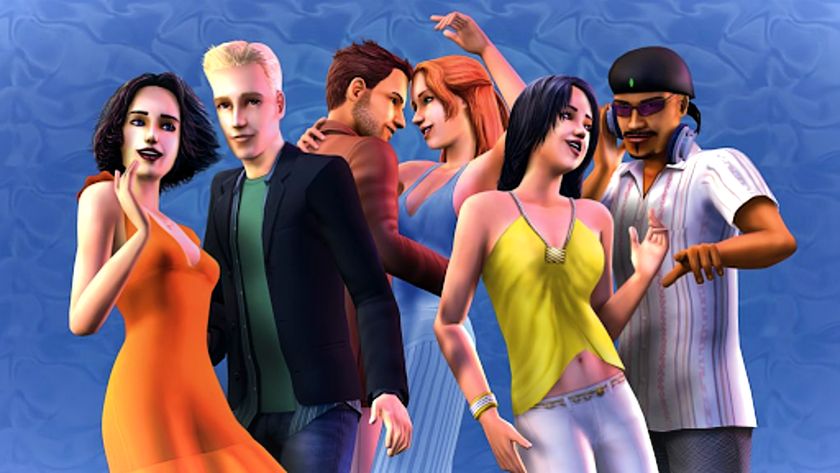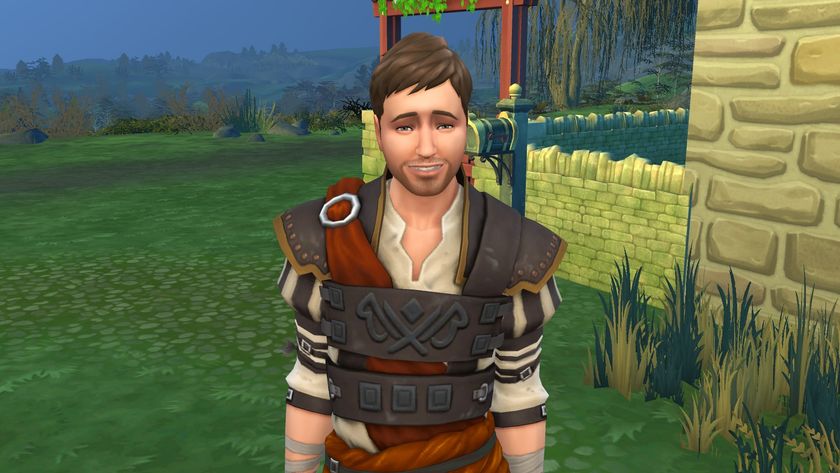Stranded Alien Dawn boss celebrates game's 1.0 launch: "Humans are story-telling animals"
Stranded: Alien Dawn leaves Early Access and shoots for the stars
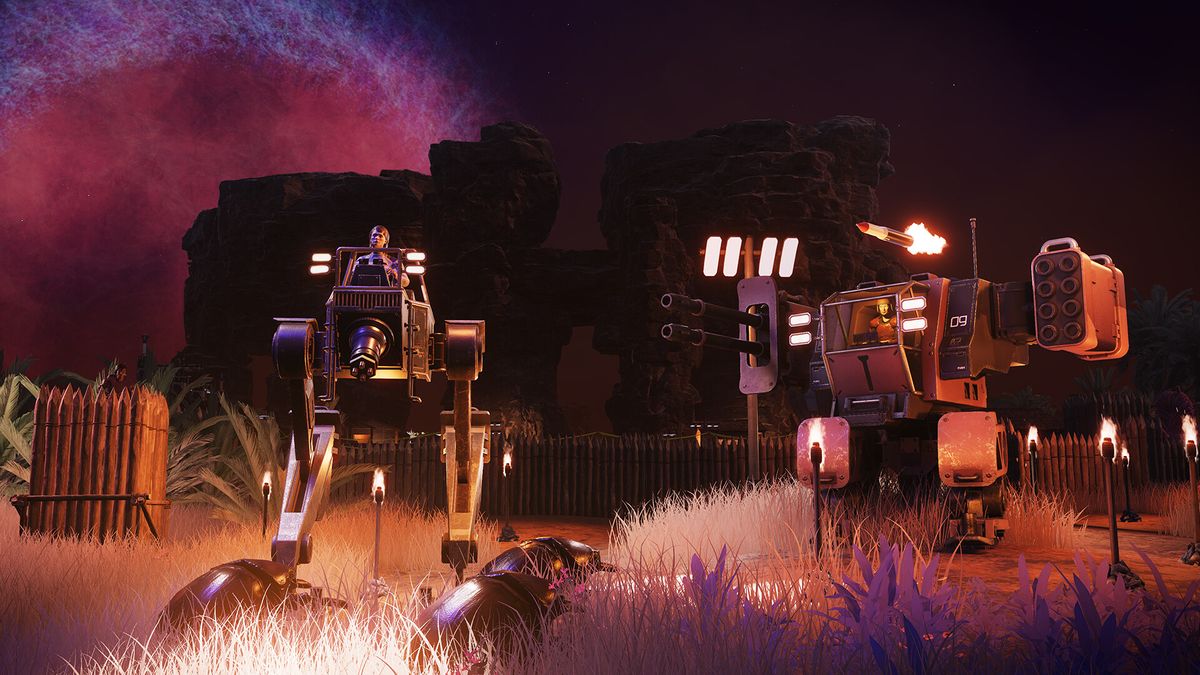
When I played an early build of Stranded: Alien Dawn, I wiped out my entire crew. Not only did I fail to protect my poor interstellar backpackers, but I pushed each and every one of them to the brink of sanity – a nightmare scenario that culminated in a horde of giant flesh-eating bugs systematically tearing my colony limb-from-limb. In the end, I couldn't decide if lasting just 10 in-game days on the Red Planet was an achievement or a brutal punishment. A week-and-a-bit isn't long for a holiday, but it sure as shit feels like a lifetime when you're starving, sleep deprived and losing your mind.
Through all of this, believe it or not, I loved my time with Stranded: Alien Dawn. At its core, it's a planet survival sim from the same dev team who worked on Surviving Mars, and Tropico 3, 4 and 5, among many other similarly-styled strategy games. But, crucially, Stranded: Alien Dawn is also a storytelling RPG, wherein players are given the tools to create, and the autonomy to succeed or fail.
"Stranded: Alien Dawn is designed as a sandbox experience for the players. It provides so many opportunities for them to adjust the difficulty and play style and take different approaches to succeed in the game," says Bisser Dyankov, CEO of Haemimont Games. "We are thrilled by the diverse approaches to gameplay we’ve been seeing – it surpasses our own expectations. Some players have managed to complete the 'Crash Landing' scenario in record time, while others have opted to build massive bases and spend in-game years defending them from huge waves of enemies."
Having spent the last several months living in Steam's Early Access space, Stranded: Alien Dawn launches in full today, April 25. Dyankov adds: "Stranded: Alien Dawn has been an incredible journey for us, and we are grateful for the passionate community that has helped shape it into the engaging game it is today."
To infinity
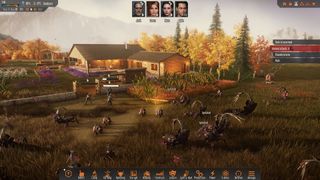
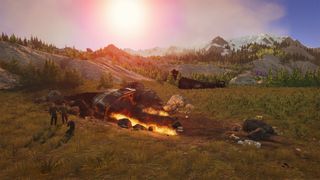
Stranded: Alien Dawn is a survival sim rooted in spectacular storytelling
The jealous side of me, of course, sneers at the players who've completed the game's opening Crash Landing scenario in record time; but their efforts also inspire my creative side. Again, it's those circumstantial, inadvertent moments in games like Stranded: Alien Dawn that I find fascinating – where one player might spend their entire time outfitting an entire commune, with carpeted living spaces and wallpapered walls; while another might scavenge for hours in order to give their community the best chance of survival longer term.
This is equally exciting for Dyankov, who says striking a balance between hardwired story elements and random outcomes is all part of the fun dev-side. He says: "As developers, we do our best to approach story beats in a way that complement, coincide with, or are actual gameplay events. While the separation between ‘video game things to do’ (i.e. day-to-day management actions in the case of Stranded: Alien Dawn) and story/RPG elements does exist in a lot of video games, we believe the best way to approach it is to weave our storytelling into these ‘video game things to do’ and let the minds of the players connect the dots and create their own stories."
"Humans are story-telling animals. We make sense of the world around us via connecting certain elements into a story that makes sense. As game developers, we believe that the gameplay elements themselves should be woven into the story. Every player is different, and has the potential to take the game (and therefore the story of their survivors) in their own direction. With Stranded: Alien Dawn we are not trying to tell a specific story, but to create an experience where the things that happen to the survivors, and the interactions between them, coincide into a natural emergent story. You could say this is 'sandbox storytelling'.
Sign up to the 12DOVE Newsletter
Weekly digests, tales from the communities you love, and more
"[Ultimately] the key is that we are not trying to tell a story in full, but promote certain events – gameplay events, story beats, etc – to prompt the player to create their own stories. So, in a way, we do not see this separation between gameplay and RPG elements but rather aim for them to work together to form a compelling and engaging experience."
Why so serious?
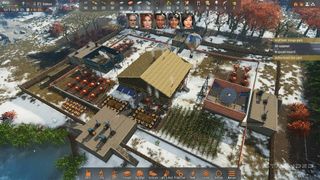
"[In the coming months] we hope to see a thriving community of players and modders who are eager to tackle new challenges and discover innovative ways to approach the game with every playthrough."
Part of what makes all of this work is the fact that Stranded: Alien Dawn never takes itself too seriously. Despite the absolute nightmare scenario I inadvertently forced my ill-fated travelers into, there was something darkly hilarious about watching my crew share one gun between four, while scampering away from the aforementioned horde of bloodthirsty flesh-eaters. Dyankov reckons games that don't take themselves too seriously are afforded a degree of creative freedom – and while he has the utmost respect for games that tackle serious themes in profound ways, he believes humor and creative latitude are central to the likes of Stranded: Alien Dawn, and Haemimont's back catalog in the likes of Tropico 3-5, and Surviving Mars.
By doing all of these things, Dyankov and his team hope that Stranded: Alien Dawn sustains the fun that unpins each (mis)adventure, and thus keeps players coming back for more and more. Having grown in size and scope over the last few months in Early Access, how the survival planet sim continues to evolve in the wake of its 1.0 release remains to be seen, but Dyankov is confident the game will continue to inspire players with a penchant for interplanetary colonization.
"[In the coming months] we hope to see a thriving community of players and modders who are eager to tackle new challenges and discover innovative ways to approach the game with every playthrough," he says. "We aspire to create a dynamic environment where creativity thrives, and players can share their ideas and experiences to enhance the gaming experience. Our goal is to have a community that is united by their passion for the game."
Check out the best survival games that will test your will to live

Joe Donnelly is a sports editor from Glasgow and former features editor at 12DOVE. A mental health advocate, Joe has written about video games and mental health for The Guardian, New Statesman, VICE, PC Gamer and many more, and believes the interactive nature of video games makes them uniquely placed to educate and inform. His book Checkpoint considers the complex intersections of video games and mental health, and was shortlisted for Scotland's National Book of the Year for non-fiction in 2021. As familiar with the streets of Los Santos as he is the west of Scotland, Joe can often be found living his best and worst lives in GTA Online and its PC role-playing scene.
Most Popular






